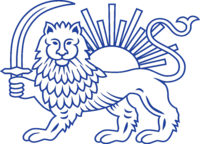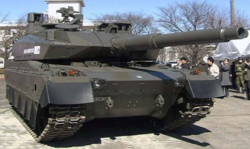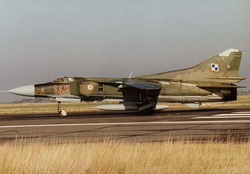Palesmenian Defense Force
| Palesmenian Armed Forces | |
 Palesmenian Coat of Arms | |
| Country |
|
|---|---|
| Current form | 2019 |
| Founded | 2018 |
| Branches |
Palesmenian Army Palesmenian Air Force Palesmenian Navy |
| Headquarters | Ábbad, Palesmenia |
| Leadership | |
| Commander-in-Chief | Thíno Wúlatet |
| Minister of Defence | Khiné Túisia |
| Manpower | |
| Military age | 18+ |
| Conscription | yes |
| Active personnel | 1,293,012 (1692 AN) |
| Reserve personnel | 5,012,767 (1692 AN) |
| Expenditures | |
| Budget | 6.4 billion ₢ (2019) 3.2 billion ₭ (2019) |
| Percent of GDP | 14.5% (2019) |
| Domestic suppliers | Beziye Arms, Lizkartaka Arms Factory, Súrajh Byeradar |
| Foreign suppliers | Yurish Arms |
The Palesmenian Defense Force (Palesmenian: Palesmenijna Defensyé Trebós, formerly known as Palesmenijna Armitká Trebós) serves as the armed forces for the nation of Palesmenia. It was founded by many high-ranking generals who personally served Nasser I Akhman during the unification wars. A 2 year conscription period is required for every adult over 18 years old. Following the 1684 coup, the military was restructured, with high ranking ministers replaced with those loyal to the new regime.
Makeup
1st Division North (Yuoi Divisoény Nórud)
- Ábbad Capital Guard (Ábbad Kapitáli Gardú)
- Ábbad 1st Regiment (Ábbad Yuoi Freskámensí)
- Surajh 1st Regiment (Súrajh Yuoi Freskámensí)
- Amur 1st Regiment (Amur Yuoi Freskámensí)
- Mánázar 1st Regiment (Mánázar Yuoi Freskámensí)
- Ábbad 1st Artillery Division (Abbád Yuoi Freskámensí Artíyela)
- Ábbad 2nd Artillery (Ábbad Secundán Freskámensí Artíyela)
2nd Brigade South (Secundán Divisoény Súd)
- Myahoetgazar 1st Regiment (Myahoetgazar Yuoi Freskámensí)
- Kándar 1st Regiment (Kándar Yuoi Freskámensí)
- Kándar 1st Artillery (Kándar Secundán Freskámensí Artíyela)
- Átri 1st Regiment (Átri Secundán Freskámensí Artíyela)
Motorized Divisions (Mótarizna Divisoénysa)
Active Bases
- CBA-181 (Corsémarya Básí Atrihár Úanmiso Tadkéaniyuo, Fortified Combat Base #181), Western Kándar
- CBA-145 (Corsémarya Básí Atrihár Úanmiso Huáoaniyarbá, Fortified Combat Base #145), Isly Pésúr, Litorál
- CBA-286 (Corsémarya Básí Atrihár Sécudaniso Tádkeasosé, Fortified Combat Base #286) Séaguna, Chákaritéia
- Snéshwiń-Varm (Friendship Corridor) Northern Átri Island, Átri
- CBA-167-Bréat (Corsémarya Básí Atrihár Úanmiso Séuénáder-Bréat, Fortified Combat Base #286-Breat), Near the ruins of Breat, Litoral.
Equipment
Small arms
| Name | Origin | Type | Quantity | Photo | Notes | |
|---|---|---|---|---|---|---|
| Handguns | ||||||
| Yurish KV-1 | Pistol | Classified by Orders of General Commander |  |
Standard Service Pistol of PDF, gifted from Krasnocoria | ||
| Yurish KV-2 | Pistol | Classified by Orders of General Commander |  |
Secondary Service Pistol, used in select operations | ||
| Rifles | ||||||
| Beziye Arms Model 1680 | Assault rifle | Classified by Orders of General Commander |  |
Standard Service Rifle of the PDF | ||
| LAH Compact Rifle | Assault rifle | Classified by Orders of General Commander |  |
Cheap and inexpensive rifle. Used in policing and exported en masse | ||
| Yurish KA | Assault rifle | Classified by Orders of General Commander |  |
Secondary service rifle. | ||
| Yurish KAS | Assault rifle | Classified by Orders of General Commander |  |
Used in select operations only. Limited amounts produced. | ||
Armored Vehicles
| Name | Origin | Type | Quantity | Photo | Notes |
|---|---|---|---|---|---|
| Uló T10 | Heavy tank | 100 |  |
Main battle tank |
Aircraft
| Name | Origin | Type | Quantity | Photo | Notes |
|---|---|---|---|---|---|
| Isomate 63 | Attack aircraft | 84 |  |
Standard Fighter |
Missile Program
Begining in late 175 NDS, the Palesmenian Defense Force began a sequence of missile tests in the Taylor Bay launched from CBA-145. This was in response to a commission by the Nadcrasi to further develop weapons systems for the PDF. Later on in 1679, more missiles were launched northward into the bay. These missiles had small explosive payloads, and were launched towards dummy ships to test the missile's targeting systems. The testing program was terminated in 1687, as it was scene as an unnecessary waste of resources.

| Class | Type | Quantity | Notes |
| Shámadíye | SRBM | 17 stockpiled, 15 in production | |
| Híawíthíyé | MRBM | 5 stockpiled, 10 in production |
Edyúsaki Térisbandá
The Edyúsaki Térisbandá was the presence of the PDF within the Nadcraši. This was met with opposition by the left-wing parties, believing that the right-wing parties would swallow their votes. However, the party had no seats in the Nadcraši. They did, however, have observer status, meaning that they bring up issues to debate on, but have no voting power. The party wasled by Máséko Ánzina, a high ranking officer within the PDF. After the government restructuring after the coup, the party, like all others, was dissolved.